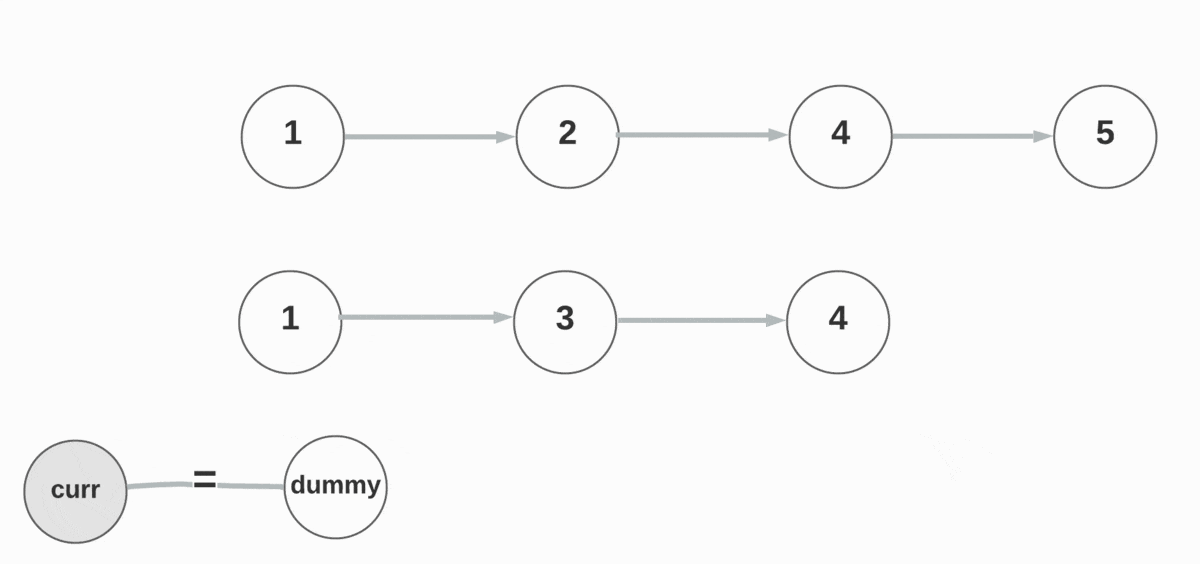Problem Statement
You are given the heads of two sorted linked lists
list1andlist2.Merge the two lists in a one sorted list. The list should be made by splicing together the nodes of the first two lists.
Return the head of the merged linked list.
Example 1:
"""
1-->2-->4-->5
^list1
1-->3-->4
^list2
1-->1-->2-->3-->4-->4-->5
^curr
"""
Input: list1 = [1,2,4,5], list2 = [1,3,4]
Output: [1,1,2,3,4,4,5]
Example 2:
Input: list1 = [], list2 = []
Output: []
Example 3:
Input: list1 = [], list2 = [0]
Output: [0]
Solution
Intuition & Patterns
In order to keep track of the head of the merged list, we will create a dummy node which will function as a pre-head node. Once we have completed the merge operation, we will return dummy.next to return the actual head of the merged linked lists.
Since we need to save the memory address of the dummy variable, we will create a curr node that we can use to modify the next pointers along the path. While list1 and list2 nodes exist, we traverse through the linked lists and set the next pointer to the next smallest node. Once one of the nodes becomes None, we set curr.next to the remaining list. Returning dummy.next gives us the head of the merged list.

Python Code
# Definition for singly-linked list.
# class ListNode:
# def __init__(self, val=0, next=None):
# self.val = val
# self.next = next
class Solution:
def mergeTwoLists(self, list1: Optional[ListNode], list2: Optional[ListNode]) -> Optional[ListNode]:
"""
T: O(N + M)
SL O(1)
"""
dummy = ListNode(-1)
curr = dummy
while list1 and list2:
if list1.val < list2.val:
curr.next = list1
list1 = list1.next
else:
curr.next = list2
list2 = list2.next
curr = curr.next
if list1:
curr.next = list1
else:
curr.next = list2
return dummy.next